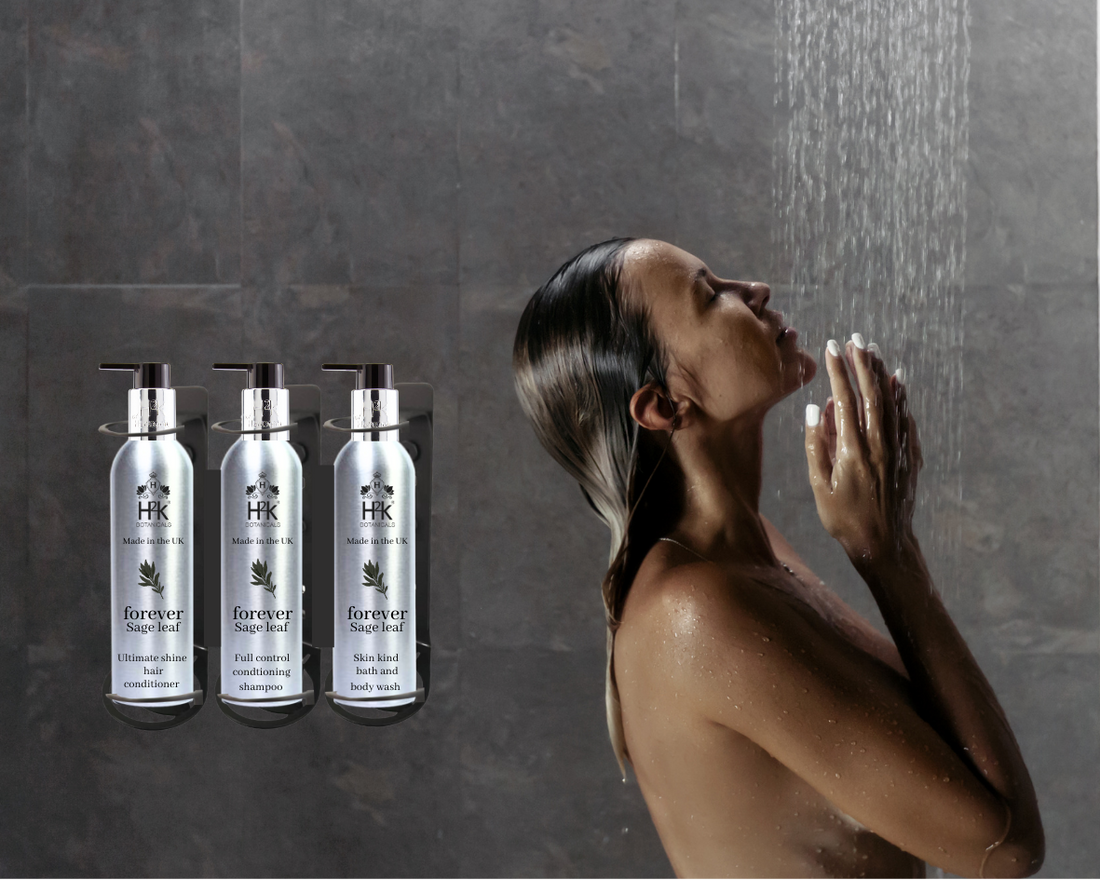Thinning hair during menopause is a common concern for many women. Menopause is a natural biological process that marks the end of a woman's reproductive years. It typically occurs in the late 40s or early 50s and is characterised by a decline in estrogen and other hormonal changes. These hormonal fluctuations can have various effects on the body, including the hair.
What factors contribute to hair thinning during menopause?
Here are some factors that contribute to thinning hair during menopause:
Hormonal Changes
Estrogen plays a crucial role in maintaining hair health. During menopause, estrogen levels decrease, and this can lead to changes in the hair growth cycle. Hair may become thinner, and the growth phase may be shortened.
Androgen Hormones
While estrogen decreases, androgen hormones (such as testosterone) may become relatively more dominant. Increased androgen levels can contribute to hair thinning by affecting the hair follicles.
Genetics
A woman's genetic predisposition can also influence the likelihood of experiencing hair thinning or hair loss during menopause. If there is a family history of thinning hair, a woman may be more prone to it.
Nutritional Deficiencies
Poor nutrition can contribute to hair loss. During menopause, women may need to pay extra attention to their diet and ensure they are getting adequate nutrients for hair health.
Stress
Menopause can be a stressful time, and stress is a known factor in hair loss. Finding effective stress management techniques may help mitigate its impact on hair health.
Thyroid Issues
Menopause coincides with the age when thyroid issues become more prevalent. Both hypothyroidism and hyperthyroidism can contribute to hair thinning.
What can be done to tackle hair thinning due to menopause?
If you are experiencing significant hair thinning during menopause, consider the following tips:
Rule out underlying medical conditions or deficiencies
Consult a healthcare Professional and/or speak to your healthcare provider or a dermatologist to rule out any underlying medical conditions that may contribute to hair loss. Ensure you have a balanced diet rich in vitamins and minerals, including those important for hair health like iron, zinc, and vitamin D.
Avoid excessive heat styling, and be gentle with hair
Minimise the use of heat styling tools such as blow dryers, flat irons, and curling wands, as prolonged exposure to high temperatures can lead to damage and breakage of your hair strands. Instead, opt for air-drying whenever possible or use heat protectant products before applying heat. Additionally, when detangling or styling your hair, use a wide-tooth comb or a brush with soft bristles to prevent unnecessary pulling and tension on your hair, which can cause breakage and split ends over time.
Use shampoos and conditioning specially designed for thinning hair
H2k offer a great shampoos and conditioners for thinning hair. Choose from either the “for beautiful hair” is an excellent shampoo to add more volume to hair.
Our new Sage collection is perfect for thinning hair. You’ll benefit from the wonderful sage oil which has antioxidant and anti-inflammatory properties. Sage oil has been used as a natural remedy for various conditions including skin and hair conditions. It's still important to consult with a healthcare professional before using herbs for medicinal purposes.
When it comes to looking after your thinning hair, H2k’s sage shampoo and sage conditioner can help to promote hair growth, reduce dandruff, and improve overall scalp health. This is why we’ve created our beautifully fragrant sage collection of hair & body products for skin health and well-being.

